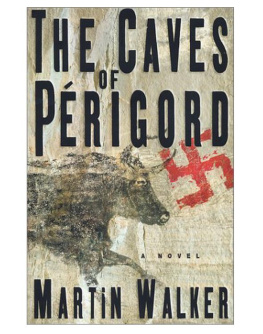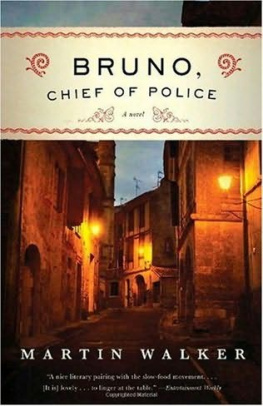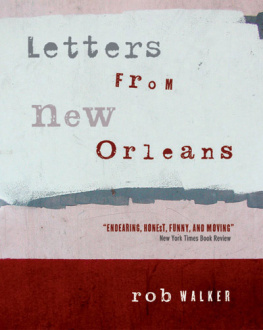Martin Walker - The Crowded Grave
Here you can read online Martin Walker - The Crowded Grave full text of the book (entire story) in english for free. Download pdf and epub, get meaning, cover and reviews about this ebook. genre: Detective and thriller. Description of the work, (preface) as well as reviews are available. Best literature library LitArk.com created for fans of good reading and offers a wide selection of genres:
Romance novel
Science fiction
Adventure
Detective
Science
History
Home and family
Prose
Art
Politics
Computer
Non-fiction
Religion
Business
Children
Humor
Choose a favorite category and find really read worthwhile books. Enjoy immersion in the world of imagination, feel the emotions of the characters or learn something new for yourself, make an fascinating discovery.

- Book:The Crowded Grave
- Author:
- Genre:
- Rating:3 / 5
- Favourites:Add to favourites
- Your mark:
- 60
- 1
- 2
- 3
- 4
- 5
The Crowded Grave: summary, description and annotation
We offer to read an annotation, description, summary or preface (depends on what the author of the book "The Crowded Grave" wrote himself). If you haven't found the necessary information about the book — write in the comments, we will try to find it.
The Crowded Grave — read online for free the complete book (whole text) full work
Below is the text of the book, divided by pages. System saving the place of the last page read, allows you to conveniently read the book "The Crowded Grave" online for free, without having to search again every time where you left off. Put a bookmark, and you can go to the page where you finished reading at any time.
Font size:
Interval:
Bookmark:
Martin Walker
The Crowded Grave
Prologue
For once, the chef de police of the small French town of St. Denis was carrying a gun. That morning Benoit Courreges, known to everyone as Bruno, had taken his official weapon from the office safe in the mairie where it stayed throughout the year, except for his annual firearms refresher course at the police range in Perigueux. He had cleaned and oiled the elderly MAB 9mm carefully, and it was now tucked into the leather holster that he had polished just after dawn, along with the belt and the shoulder strap he hardly ever wore. His full dress uniform smelled faintly of the dry cleaners where he had picked it up on the way to the mairie that morning. His hair was newly cut, his morning shave had been unusually close, and his boots were polished to the kind of brilliant shine that only a former soldier can achieve.
Beside him, Sergeant Jules and the rest of the small team that staffed the Gendarmerie of St. Denis stood in formal ranks in front of their modest stucco-fronted building. The gendarmes also wore full dress uniform, and it would have taken a careful observer to note any difference between their dress as functionaries of the French state and Brunos as an employee of the town of St. Denis. On the flat roof of the gendarmerie, beside the radio antenna, the tricolor flew at half-mast, and above the door was a plaque of the flaming grenade that had been the symbol of the gendarmes since their founding in 1791. Of Capitaine Duroc, the nominal head of the post, there was no sign. He had called in sick, to avoid rather than disobey the official order that the police and gendarmes of France should not formally commemorate the death of Brigadier Nerin. But here in St. Denis, as in police stations and gendarmeries across France, the rank and file and many of the officers had chosen to mark his killing with a parade of honor. Over a glass of wine the previous evening, Bruno had arranged with Jules that he would read out the brief statement and lead the parade. Employed by the mairie, Bruno was thus less at risk than the sergeant of an official reprimand or even demotion. And Jules had his pension to consider.
Now Bruno checked his watch for the precise time. He came to attention, marched forward, and turned to address the gendarmes. He noted that each of them, men and women alike, was wearing the same black armband of mourning that he had attached to his own right sleeve. A small knot of townsfolk stood in silence, watching. Bruno nodded at the young boy who stood to one side, dressed in a gray shirt and black tie and carrying a bugle.
Respected colleagues, Bruno began. We are here to mark the death on active duty of Brigadier of gendarmes Jean-Serge Nerin. He was murdered at Dammarie-les-Lys in the Departement of Seine-et-Marne while hunting down the terrorist cell that killed him. This is the first killing of a French policeman by the Euskadi Ta Askatasuna, the ETA, the Basque terrorists who have already killed more than eight hundred people in Spain. Death on active service has always been a risk in our profession, but murder by terrorists is a special event. Our colleagues across France have agreed, despite official discouragement, that we shall all observe a minute of silence in honor of our fallen comrade Brigadier Nerin.
He paused and then, in his best parade-ground voice, called out A mon commandement.
The line of gendarmes braced, ready for his next command.
Escadron, garde a vous.
They came to attention and Bruno raised his right arm to the brim of his hat in salute, the signal he had prepared with young Jean-Michel. The boy raised the bugle to his lips and blew the first haunting note of the Sonnerie aux Morts, the bugle call that the Garde Republicaine played for its dead. When the final three notes faded away, Bruno began to count in his head for the full minute of silence, his arm becoming heavier so that he had to make a deliberate effort to keep his hand from quivering. Finally it was over. He lowered his hand and dismissed the parade.
Sergeant Jules was the first to come across and shake his hand, and then each of the gendarmes, male and female, followed suit as they filed back into the gendarmerie. Bruno went across to Jean-Michel and thanked him and then walked in silence along the rue de Paris, back toward his office in the mairie and the safe where he would lock away his pistol for another year. He crossed the main square and turned in at the narrow iron-studded door, avoiding the public entrance with the modern elevator and preferring to climb the ancient stone steps. At the top, he found the mayor filling his pipe and waiting patiently for his arrival.
Thank you for being there, Bruno said. I saw you in the crowd.
Thank you for doing this, Bruno, and the music was a lovely touch. It will be a sad day if France fails to honor those who fall for the Republic. I saw Capitaine Duroc had once again managed to extract himself from an embarrassing situation.
Well, sir, luckily I only have to answer to you, not the government of France.
The mayors eyes twinkled. Ah, Bruno, how very nice of you to say so. If only it were true.
1
It felt like the first morning of spring. The early sun was chasing the mist from the wooded hollows that sheltered the small streams flowing busily down to the River Vezere. Drops of dew sparkled on the new buds that seemed to have appeared overnight on the bare trees. The air smelled somehow different, fresh and hopeful, and enlivened by the tuneful notes of a dozen different birdsongs. Excited by the change in scents and season, even after his early morning walk through the woods, Gigi the basset hound thrust his nose at the open window of the small police van that descended the steep and curving lane from his masters home. At the wheel, Bruno was singing a half-remembered song about springtime in Paris and vaguely thinking of the duties of the day that stretched before him, when rounding the last bend he was suddenly forced to brake.
For the first time in his memory, the quiet road ahead was blocked with a line of cars and tractors, their engines running and their drivers heads poking from windows. Some were out of their cars, looking at the road that led to St. Denis. Several were talking urgently into cell phones. In the distance a car horn sounded, swiftly joined by others in discordant chorus. As Bruno surveyed the scene his own phone began to ring. He checked the screen, recognized the name of Pierre, a neighbor who lived farther up the road. He ignored it, assuming Pierre would be calling to complain at being stuck in the jam ahead. There had to be an accident of some sort.
Bruno pushed aside the thought that he could have avoided this delay if hed stayed the night with Pamela, the Englishwoman hed been seeing since the autumn. She had called off the arrangement that he would dine with her and stay the night, saying shed finally secured an early morning appointment with the marechal, the traveling farrier who was to reshoe her horses. Pamela postponed their meetings too frequently for Brunos comfort, and he was never quite sure whether she was cooling on their relationship or simply wary of commitment. They were to meet again that evening, he reminded himself, without feeling greatly reassured. He parked the van and climbed out to investigate. The best view of the long traffic jam was commanded by Alain, who kept a dairy farm farther up the road to Les Eyzies.
Geese-the roads full of ducks and geese, he called down to Bruno from his perch high on a tractor. Theyre all over the place.
Bruno heard the sound of rival honking as the geese called back in response to the car horns, and he quickly clambered up beside Alain to peer ahead. The traffic jam stretched as far up the road as he could see. Darting between the stalled cars were perhaps hundreds of ducks and geese, streaming through the woods on the side of the road and heading across it to settle in a broad pond that spread across the meadow, swollen by the spring rains.
Font size:
Interval:
Bookmark:
Similar books «The Crowded Grave»
Look at similar books to The Crowded Grave. We have selected literature similar in name and meaning in the hope of providing readers with more options to find new, interesting, not yet read works.
Discussion, reviews of the book The Crowded Grave and just readers' own opinions. Leave your comments, write what you think about the work, its meaning or the main characters. Specify what exactly you liked and what you didn't like, and why you think so.







